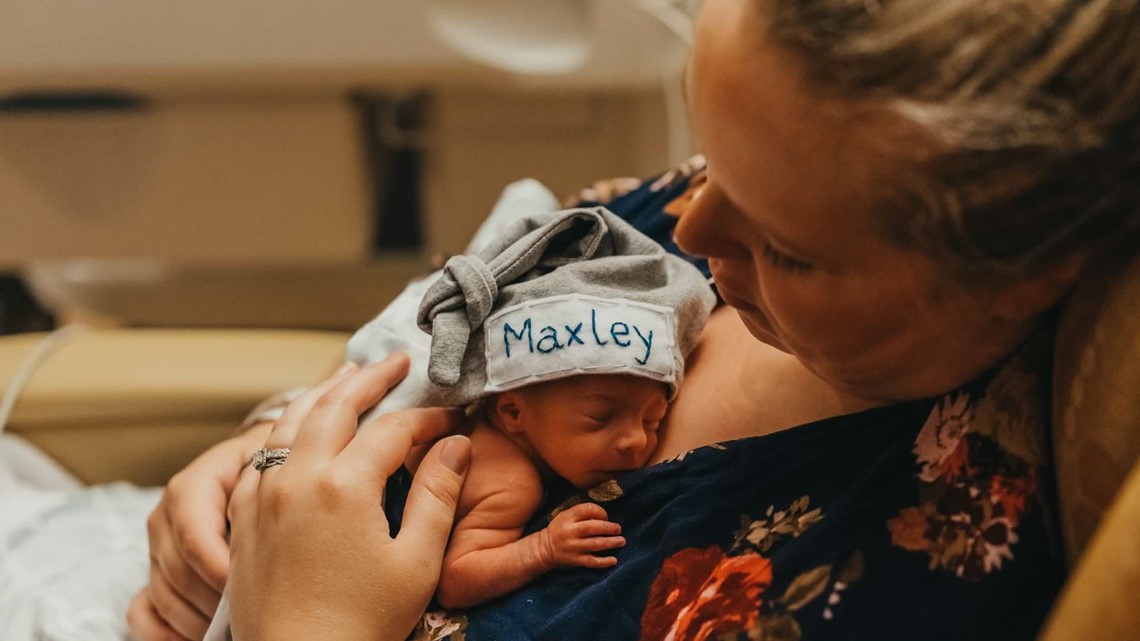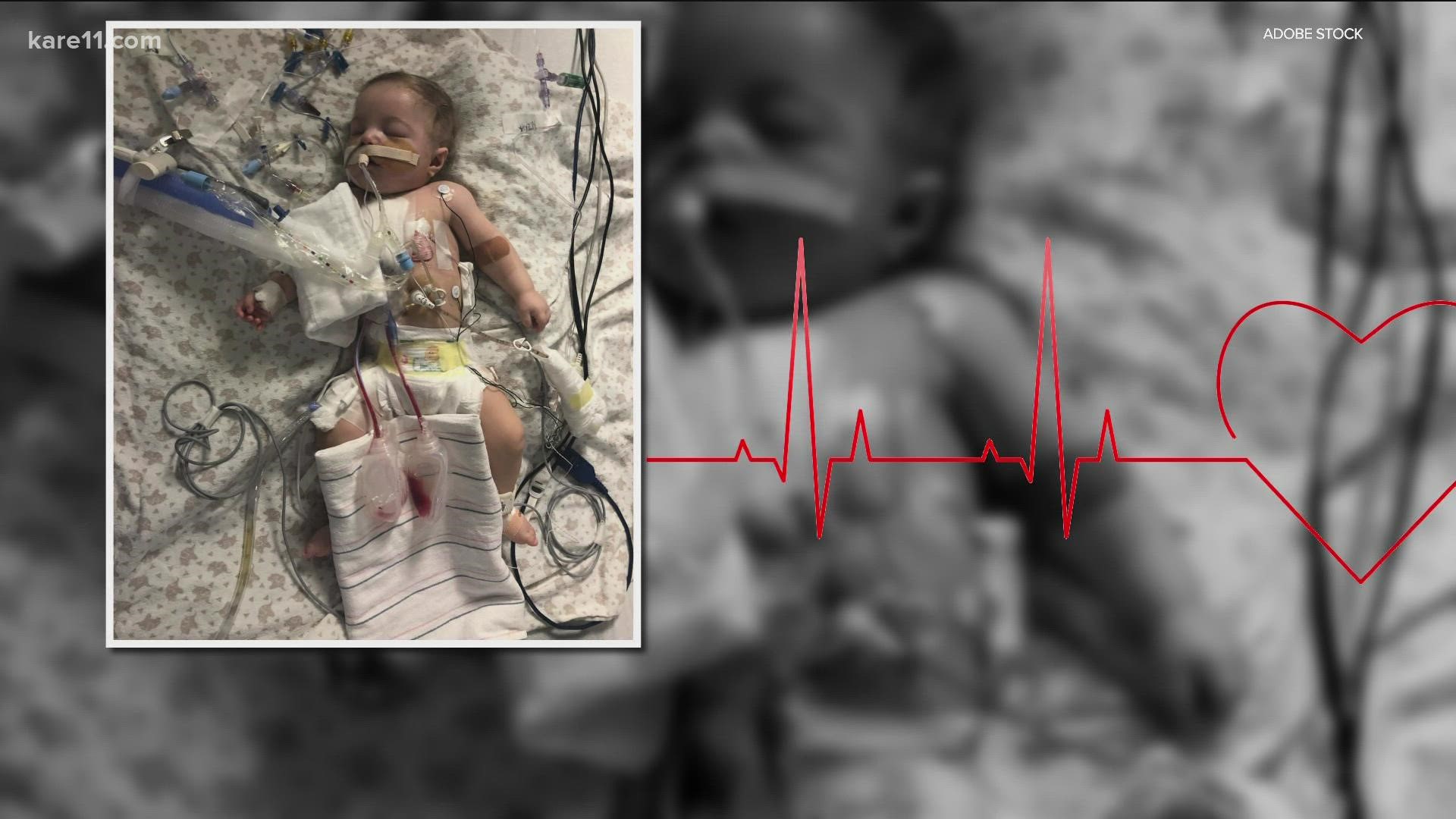PRIOR LAKE, Minnesota — Summer is generally a difficult time to collect blood donations, but this year with hospital demand on the rise, there's even more urgency.
A mother from Prior Lake hopes sharing her family's story will inspire more people to donate blood.
"I never thought that this would be my life. I never thought I'd be passionate about blood donation, but it's so, so critical," said Kelsey Ferguson.
Unfortunately, Ferguson learned the hard way just how pivotal the blood supply is. In 2019, her then-7-month-old son, Maxley, needed open-heart surgery.
"I mean, he was 11 pounds, and he needed 73 blood transfusions," she recalled.
Yes, 73 transfusions to keep little Maxley alive for 25 days while he existed on life support.
"I just can't even imagine being in a position that my son wouldn't be able to fight for his life because of something so simple that we all possess, that our bodies can reproduce," she said.


This past June, Ferguson, and Maxley had to do it all over again.
"He had his second open heart surgery where he needed to go on heart bypass to stop his heart. Again, you need blood product during that operation to fix his heart so he can keep living, and grow up, and stay with me," Ferguson said.
The Red Cross likes to keep a five-day supply of all types of blood to help patients like Maxley. But right now, the nation is facing a critical inventory level. That's according to Sue Thesenga with the Red Cross. She says they're down to a one-day supply of Type-O, the blood most requested by hospitals.
"O negative is the universal blood type, and that's the blood that emergency room doctors reach for first in trauma or emergency situations because the recipient does not have to be typed," said Thesenga.
Blood is perishable and has a shelf life. "It's not like we can stockpile it like toilet paper during COVID-19," Thesenga explained.
Consistency is key to keeping the blood supply flowing. It's not simply 'one and done.' It takes commitment, but to patients like Maxley and his mom it means the world. "I mean, you're a hero just to give blood, and I know that better than a lot of people," said Ferguson.
The family dealt with a lot during Maxley's hospital stay, including the death of Ferguson's husband, Scott. He had a form of Vasculitis, an inflammation of the blood vessels. Even after receiving many blood transfusions, Scott died just four days before Maxley was born.
Since then, Kelsey tried donating herself but was diagnosed with anemia. Now she organizes blood drives and advocates for organizations like the Red Cross.
The Red Cross is doing all it can to help patients across the country and sent 12% more blood products to hospitals in recent months, including higher distributions to areas where the pandemic disrupts blood collections.
As summer vacations end and people return to regular routines, the Red Cross encourages eligible donors to make an appointment to give now.
To be eligible to donate in Minnesota, you need to be 16 years old with parental consent or 17 years old with a valid ID. In addition, you need to weigh 110 lbs. and be in generally good health.
To sign up to donate, visit the regional Red Cross website here. You can also use the Red Cross Blood Donor App or calling 1-800-RED CROSS (1-800-733-2767).

